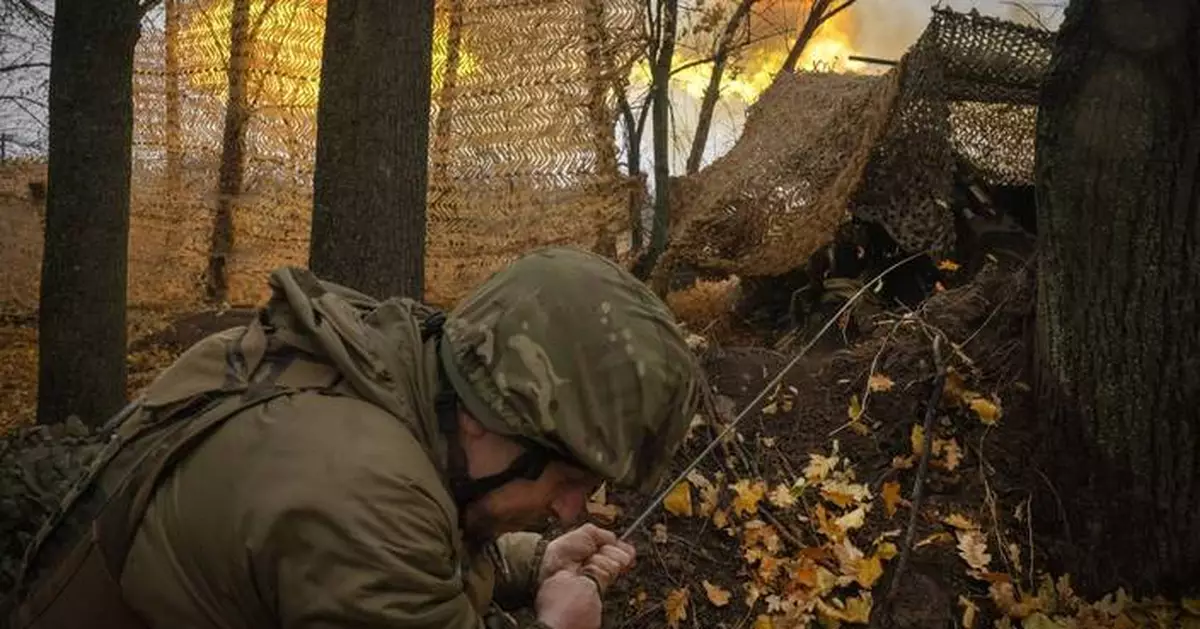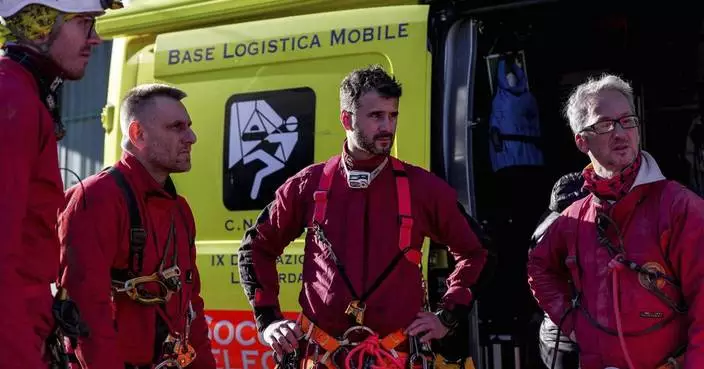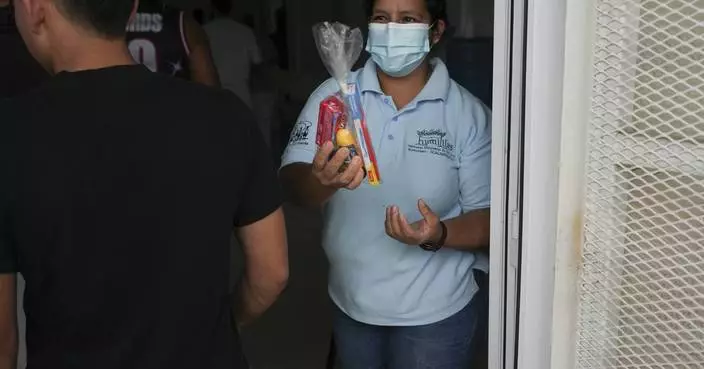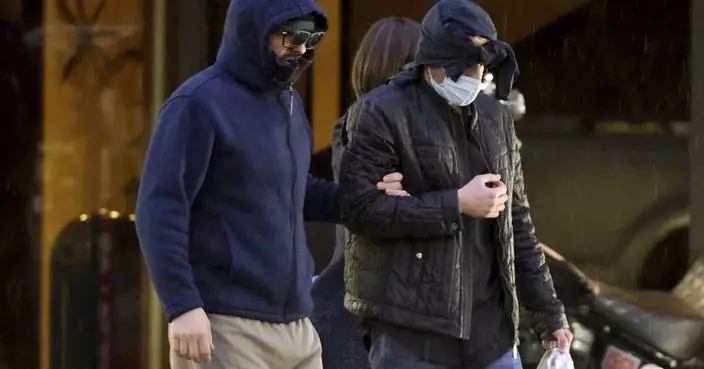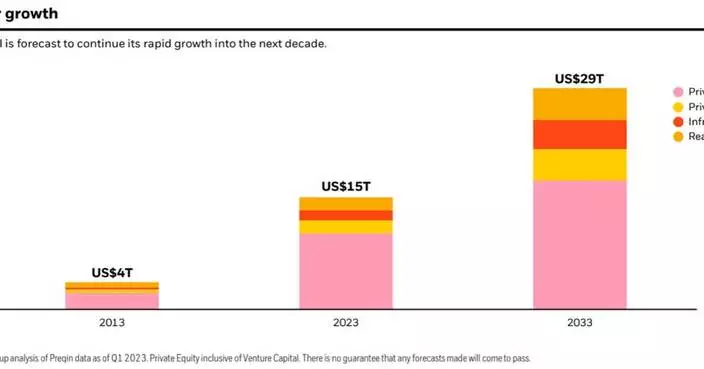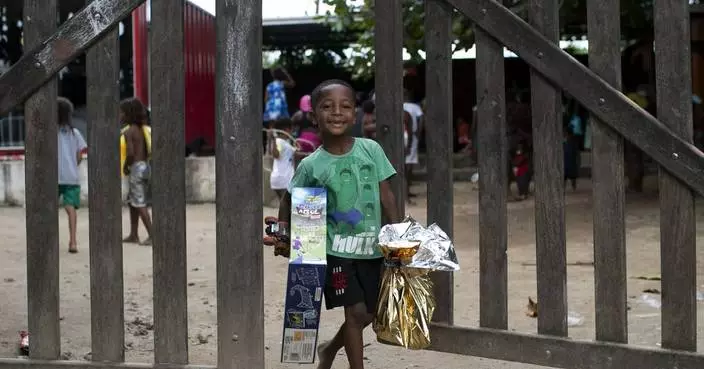KYIV, Ukraine (AP) — Ukraine’s military intelligence agency claimed Monday that around 30 North Korean troops were killed or wounded in fighting against the Ukrainian army at the weekend in Russia’s Kursk border region.
This is the first reported casualties since the Pentagon and Ukraine announced North Korea has sent about 10,000 troops to Russia to help it in the almost 3-year war.
The casualties occurred around three villages in Kursk, where Russia has for four months been trying to quash a Ukrainian incursion, the agency, known by its acronym GUR, said in a public post on the Telegram messaging app.
At least three North Korean servicemen went missing around another Kursk village, GUR said.
It was not possible to independently verify the Ukrainian claims. Kremlin spokesman Dmitry Peskov referred related questions to the Russian Defense Ministry, which didn’t immediately comment.
North Korean leader Kim Jong Un has pledged unwavering support for Russia’s full-scale invasion of its neighbor under a mutual defense pact.
The alliance gave a jolt to international relations, and Russian President Vladimir Putin said Monday that the planned deployment of U.S. intermediate-range missiles to Europe and Asia has brought new threats.
“In view of rising geopolitical tensions, we must take additional measures to ensure the security of Russia and our allies,” Putin told a meeting with top military brass. “We are doing it accurately and in a balanced way to avoid being drawn into a full-scale arms race.”
However, military analysts say the language barrier has bedeviled combat coordination between Russian and North Korean troops.
“The poor integration and ongoing communication problems between Russian and North Korean forces will likely continue to cause friction in Russian military operations in Kursk … in the near term,” the Institute for the Study of War, a Washington think tank, said late Sunday.
On Nov. 5, Ukrainian officials said that their forces had for the first time engaged with North Korean units that had been recently deployed to help Russia.
Ukraine seized land in Russia’s Kursk border region last August in what was the first occupation of Russian territory since World War II. The operation embarrassed the Kremlin and aimed to counter unceasingly glum news from the front line.
The incursion hasn’t significantly changed the war’s dynamics. Over the past year, Russia has been on the front foot, with the exception of Kursk, and has been grinding deeper into eastern Ukraine's Donetsk region despite heavy losses.
Russian Defense Minister Andrei Belousov said Monday the military has been making steady gains in Ukraine, claiming that they have accelerated recently, with Russian forces capturing about 30 square kilometers (11.5 square miles) of territory a day.
—
Follow AP’s coverage of the war in Ukraine at https://apnews.com/hub/russia-ukraine
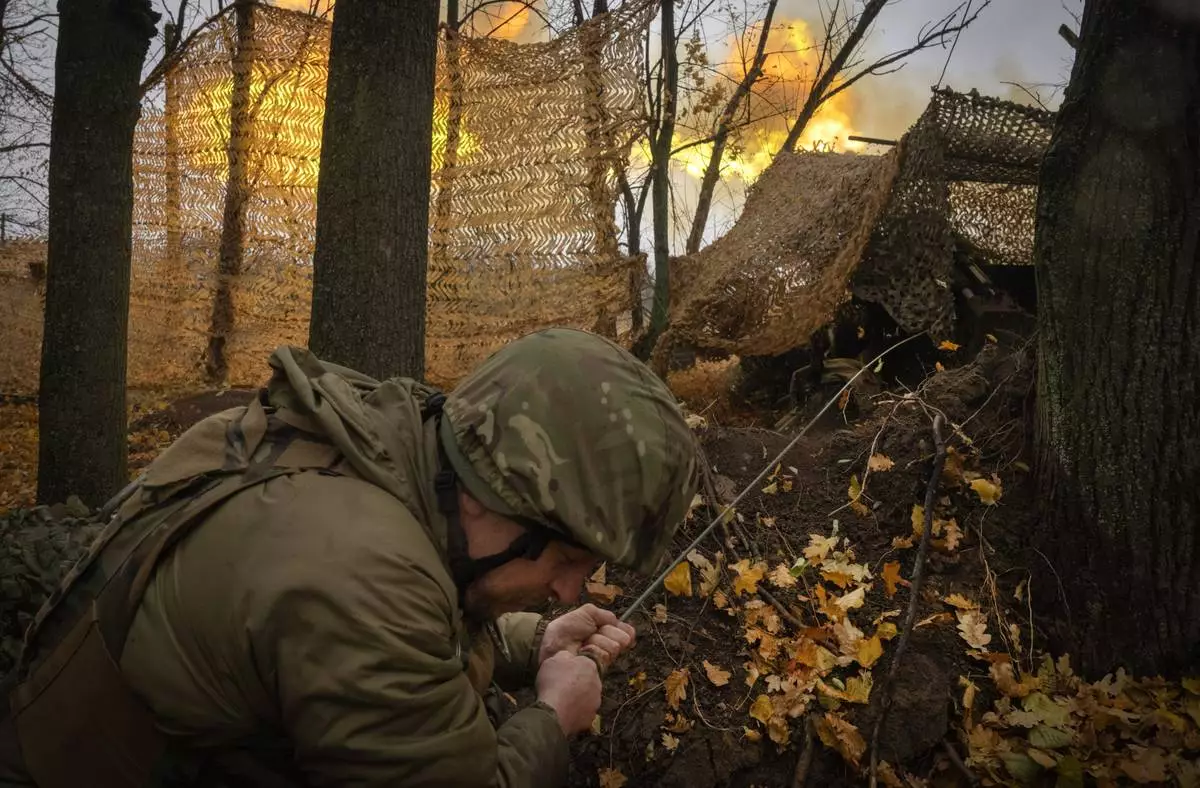
FILE - A serviceman of the 13th Brigade of the National Guard of Ukraine fires Giatsint-B gun towards Russian positions near Kharkiv, Ukraine, on Nov. 6, 2024. (AP Photo/Efrem Lukatsky, File)
BELGRADE, Serbia (AP) — Serbia’s secret service and police have been spying on journalists and opposition activists by installing a spyware on their mobile phones, Amnesty International said Monday.
The watchdog's report, backed by testimonies of those who claim their phones have been hacked in recent months, says the spy software was used to unlock phones to capture covert screenshots and copy contact lists, which were then uploaded to a government-controlled server.
The report titled “A Digital Prison: Surveillance and the Suppression of Civil Society in Serbia" said the Serbian police and the Security Information Agency (BIA) used the spyware to infect devices while their owners were detained or interviewed by police.
“Our investigation reveals how Serbian authorities have deployed surveillance technology and digital repression tactics as instruments of wider state control and repression directed against civil society,” said Dinushika Dissanayake, Amnesty International’s deputy regional director for Europe.
Serbia’s police said in a statement that the Amnesty report is “absolutely incorrect,” but also added that "the forensic tool is used in the same way by other police forces around the world.”
Serbia's spy agency said on its website that it “works exclusively in accordance with the laws of the Republic of Serbia.”
“Therefore, we are not even able to comment on nonsensical allegations from their (Amnesty) text, just as we do not normally comment on similar content," BIA said.
The Amnesty report comes as President Aleksandar Vucic is facing one of the biggest challenges to more than a decade of his increasingly autocratic rule, with widening anti-government protests that so far have been largely peaceful.
Protests have been led by university students and opposition activists following the collapse last month of a concrete canopy at a railway station in the country’s north that killed 15 people on Nov. 1.
Many in Serbia believe rampant corruption and nepotism among state officials led to sloppy work on the building reconstruction, which was part of a wider railroad project with Chinese state companies.
Vucic has accused Western intelligence services, NGO groups and foreign media of conducting a “hybrid warfare” against him and his country by illegally financing the protests.
The Belgrade Center for Security Policy, an NGO group, strongly condemned the authorities’ misuse of digital technologies for surveillance and demanded an immediate, transparent and independent investigation into the allegations reported by Amnesty International. It also called for the prosecution of those responsible within the police and the Security and Information Agency.
“In a country where civil protests are growing in scale, and discontent with the regime is becoming louder, these practices represent a direct attack on fundamental freedoms, including the right to peaceful assembly, freedom of expression, and the right of association,” the group's statement said.
Serbia, which formally seeks European Union membership, has been forging close ties with Russia and China, including their spy agencies in what officials said was a joint action against the so-called “colored revolutions” —- street protests against repressive regimes.
Associated Press writer Jovana Gec contributed to this report.
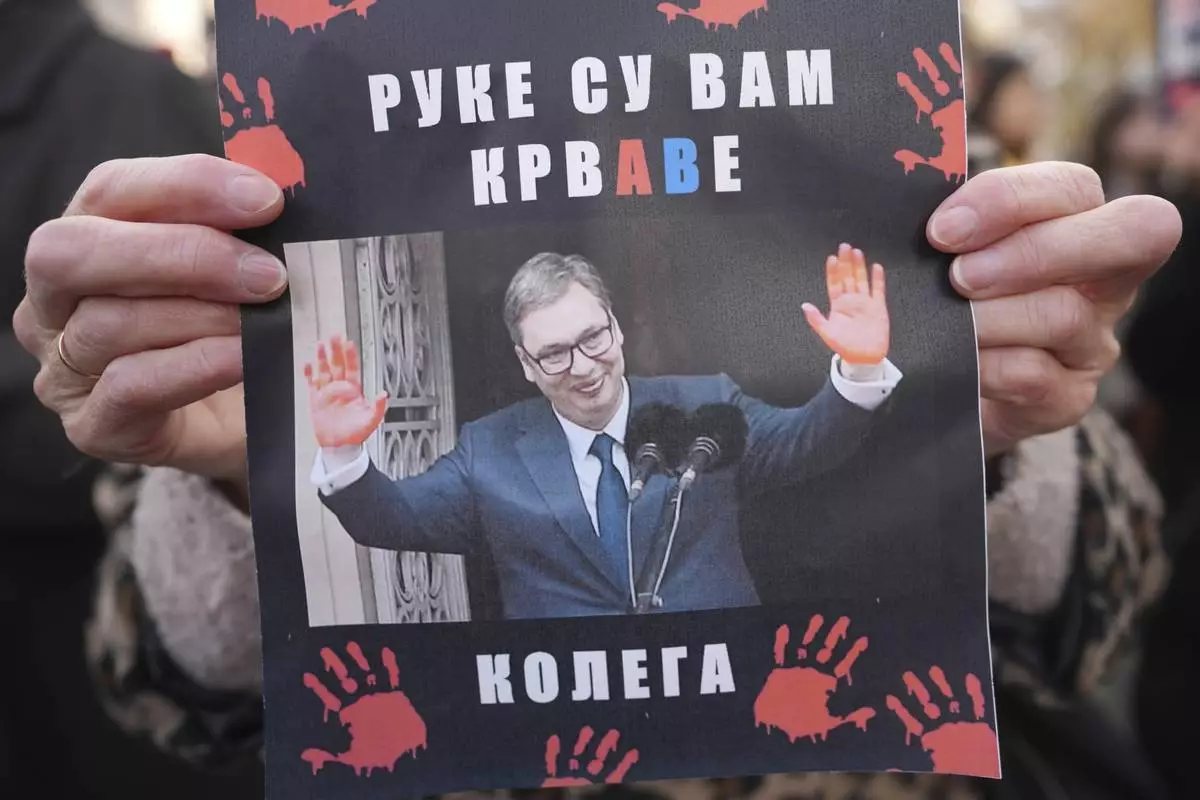
A woman holds a banner that shows Serbian President Aleksandar Vucic, reading: "You have blood on your hands!" and stopping traffic, standing in silence to commemorate the 15 victims of a railway roof collapse five weeks ago, demanding accountability for the tragedy in Belgrade, Serbia, Friday, Dec. 6, 2024. (AP Photo/Darko Vojinovic)
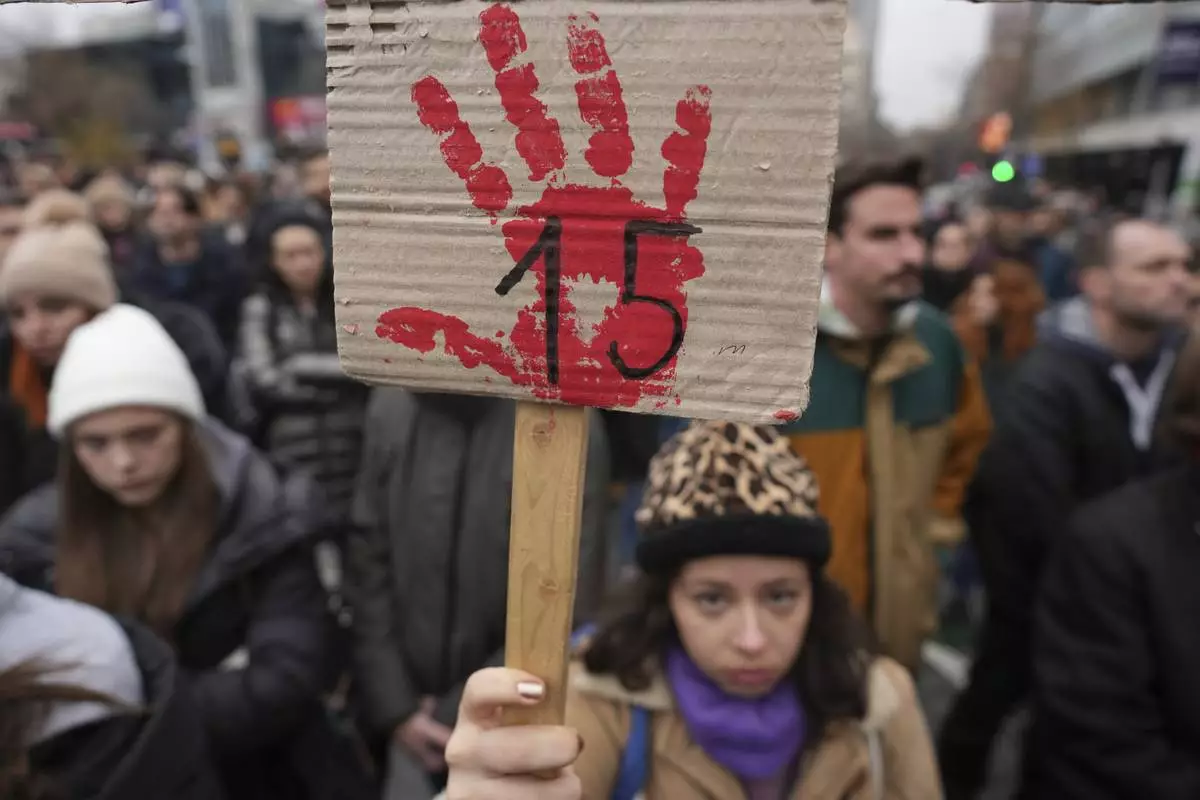
People stopping traffic stand in silence to commemorate the 15 victims of a railway roof collapse six weeks ago, demand accountability for the tragedy, in Belgrade, Serbia, Friday, Dec. 13, 2024. (AP Photo/Darko Vojinovic)



